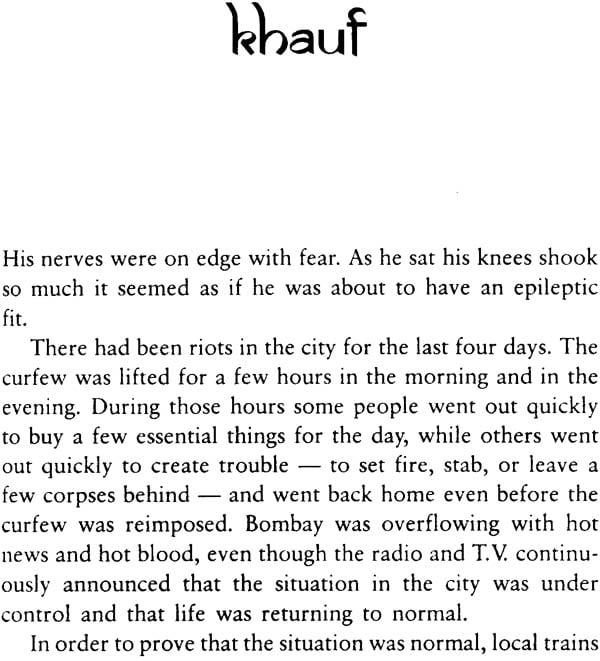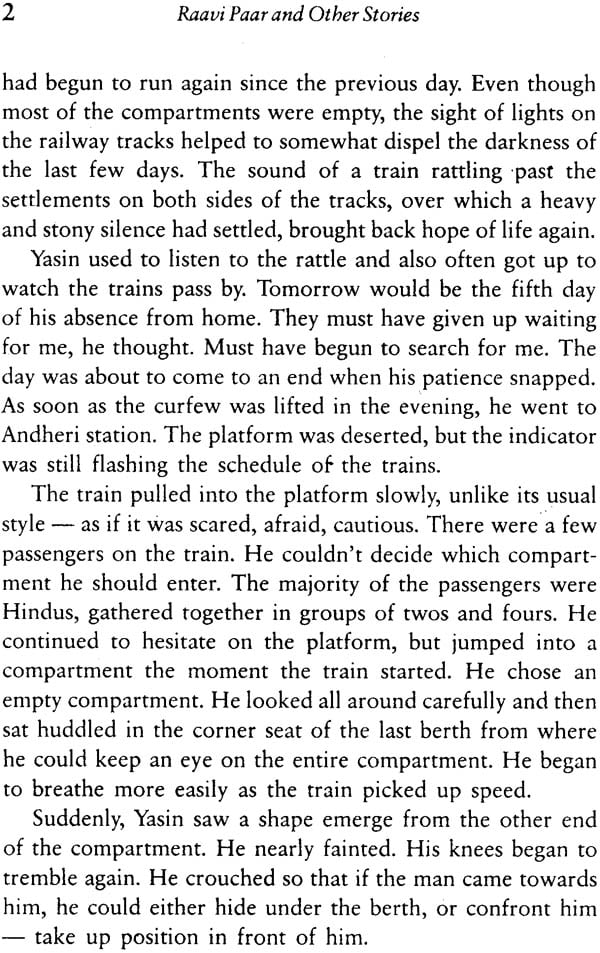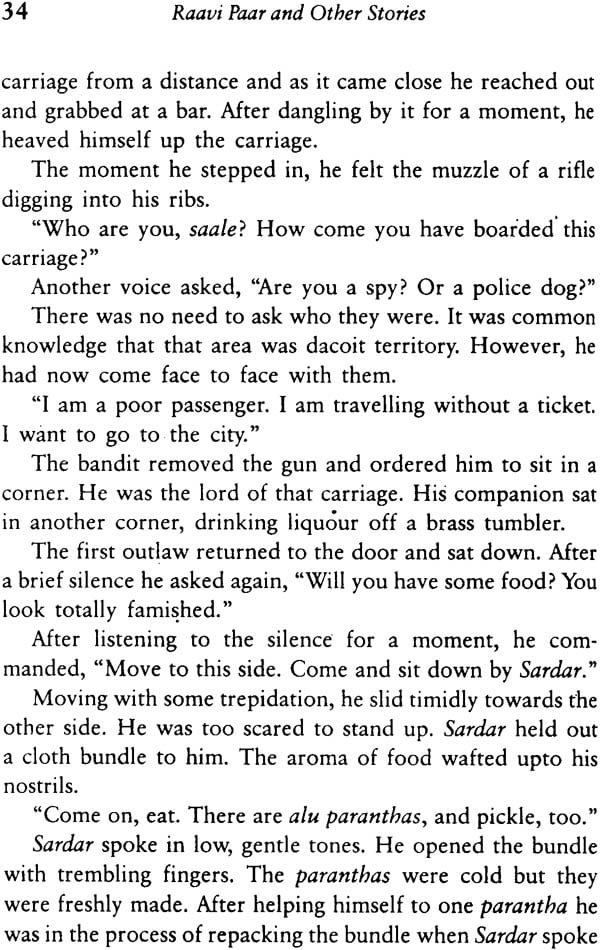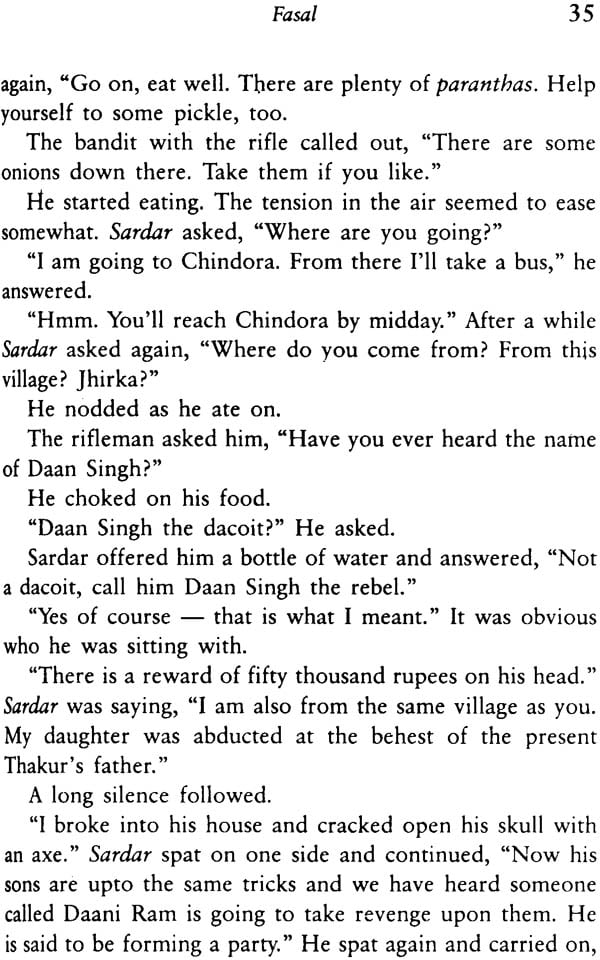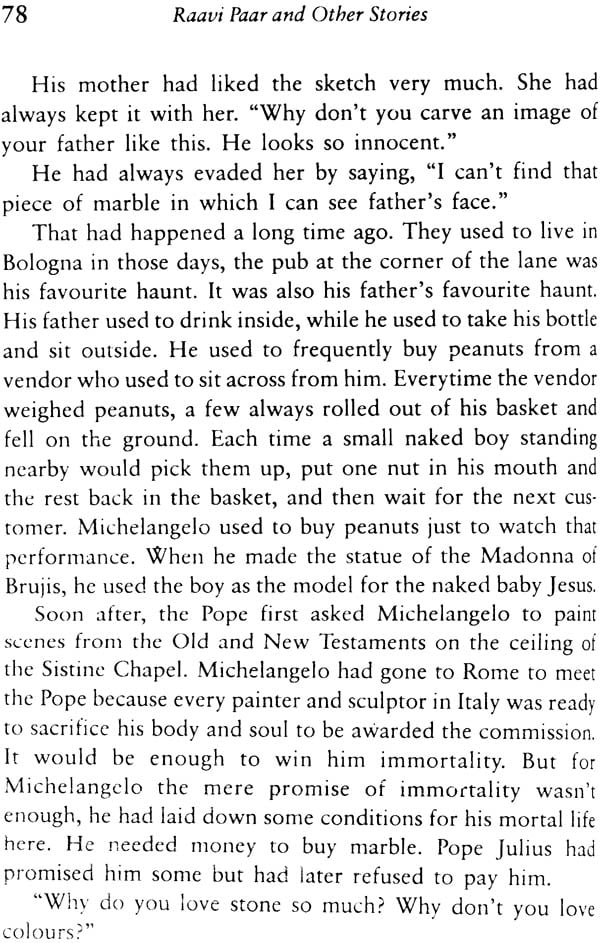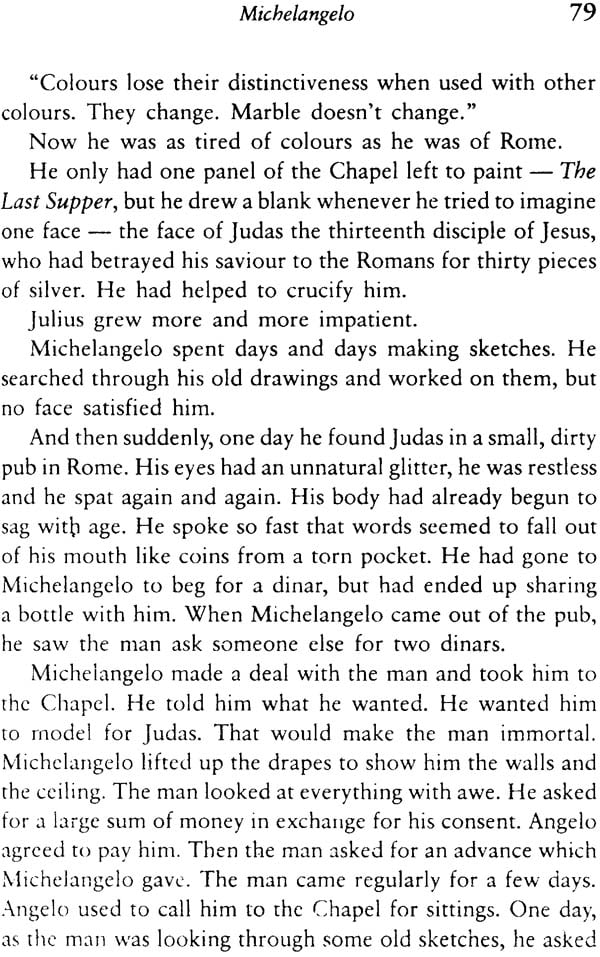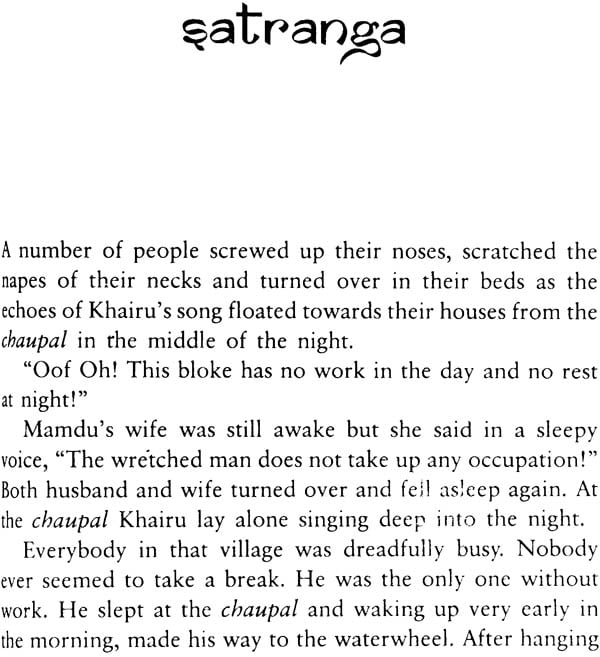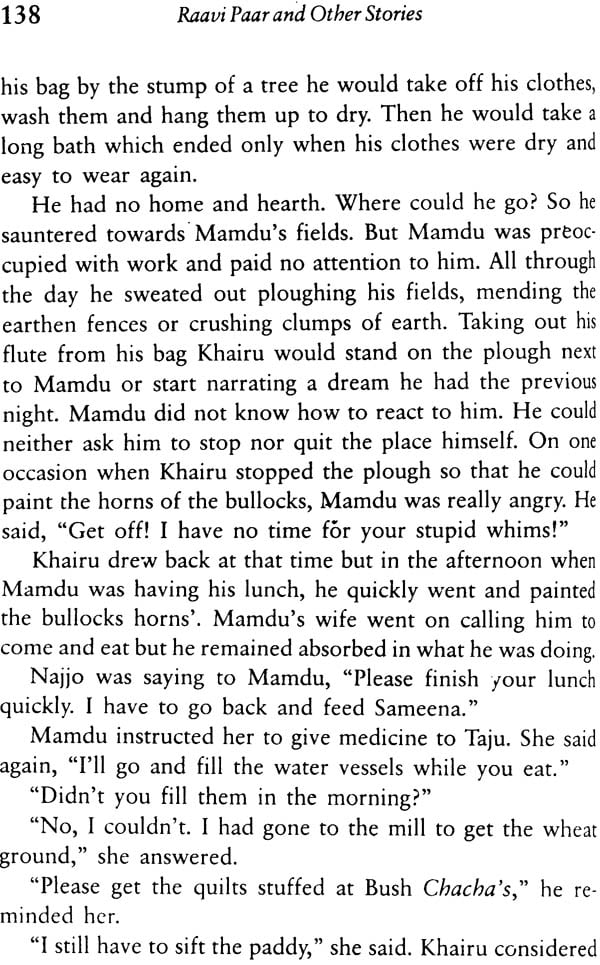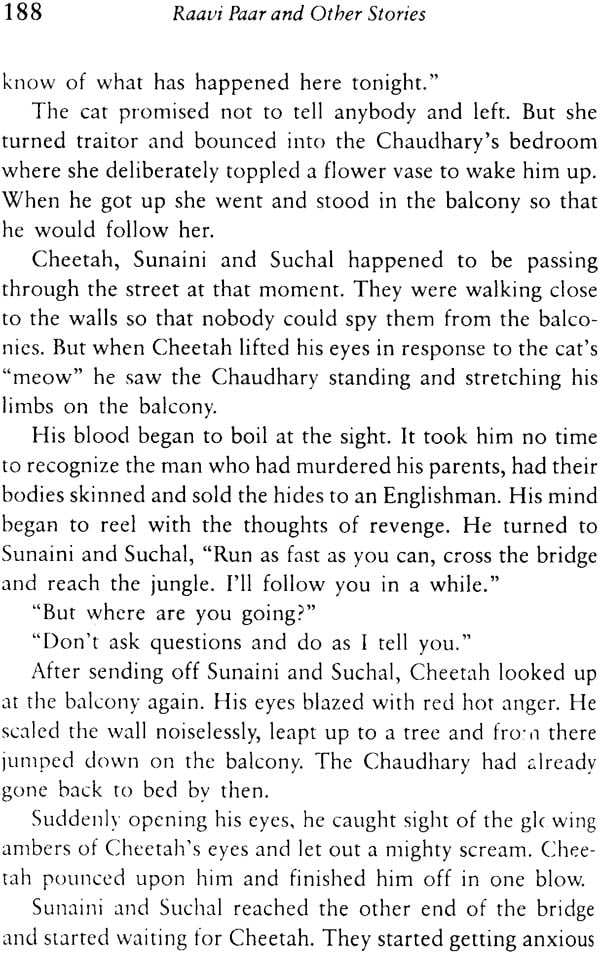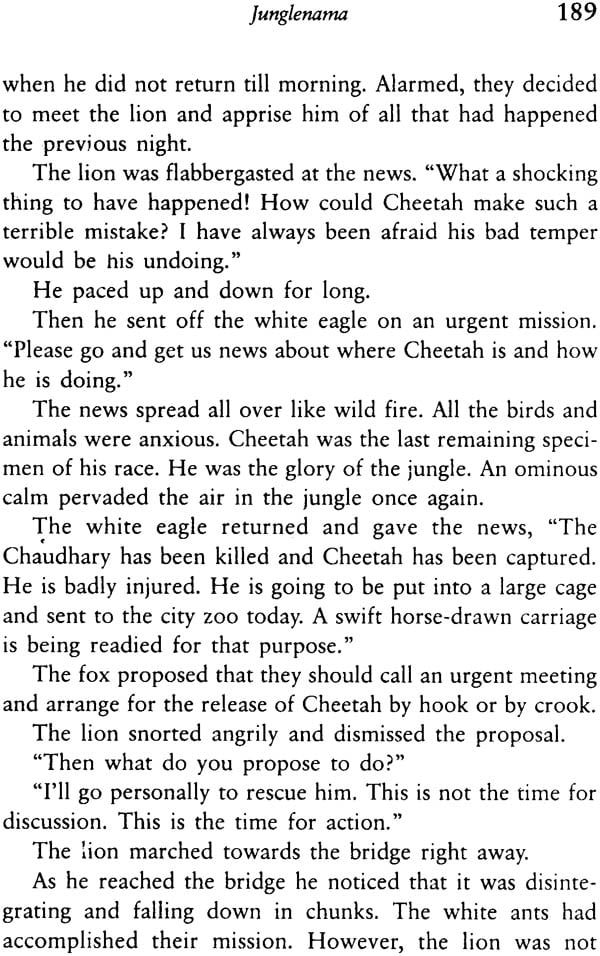
Raavi Paar and Other Stories
Book Specification
| Item Code: | NAJ063 |
| Author: | Gulzar |
| Publisher: | Rupa Publication Pvt. Ltd. |
| Language: | English |
| Edition: | 2010 |
| ISBN: | 9788129110138 |
| Pages: | 208 |
| Cover: | Paperback |
| Other Details | 7.5 inch x 5.0 inch |
| Weight | 190 gm |
Book Description
About the Book
The stories is Gulzar’s first ever short story collection in English have a distinct combo quality, reflected in each story’s subject matter and narrative style. The ingeniousness of this versatile writer finds expression in short narratives that vary from anecdotes to descriptions of states of mind.
Serious, moving funny and ironic by turns, the stories in this collection are replace with the perceptions of a man who has viewed the world with equanimity and compassion. Its is no surprise, therefore, that in spite of their concern with human suffering, Gulzar’s stories are refreshingly free from cynicism Dextrously weaving tales with universal themes, ordinary characters and everyday incidents from his own unique perspective, this unconventional storyteller reveals the truth of existence with sincerity and sensitivity.
About the Author
Gulzar was born in Deena (Pakistan) in 1934. He was brought up in Delhi and later moved to Bombay.
In the film world, he has worked with Bimal Roy, Hrishikesh Mukherjee, Hemant Kumar and others. During his long and celebrated career, Gulzar has written many melodious and meaningful songs. He started writing screenplays and scripts, which were like a breath of fresh air in the film industry. Later he got into direction and made the most poignant and significant films.
Gulzar has written the scripts for now nearly fifty films and has directed several, some of which are Mere Apne, Aandhi, Mausam, Khushboo, Kinara, Meera, Parichay, Lekin, Libaas and, most recently in 1997, Maachis, for which he received national and international acclaim and several awards. Gulzar has also made two serials for television: Kirdar and Mirza Ghalib.
Foreword
Writing a short story is an experience of thought to me. It is something more than a sheer feeling. It needs a: little more narrative than a poem. My stories are as short .as they can be, except perhaps for junglenama, Habu Tames Fire and Seema. I required to elaborate at length, the covert thought present in them, to share the experience with my readers.
Some' of my stories are biographical, which like biographical novels, are not oft trod territory. I have tried to write, for the first time, a short story in the same genre, highlighting a major incident in the lives of those persons. Bimalda and Michelangelo are two of them. The latter's incident is like a parable, which I found extremely profound in its interpretation. The story is like the legendary Baiju Bawra-Tansen confrontation, which finds no witness in our history. It has no written record, but the parable or the legend lives on. There are many such' more in our history.
I am fond of travelling in time and space. In due course of 'time', I may come up with some more stories, which in a sense 'travel'. I undertook a similar, journey to look at the extinguished star, Eta Coriniae's impression on one part of our Mother Earth. It becomes all the more relevant now, since the graves of the star poets of all times, Zauq and Ghalib have been discovered recently in very shabby conditions in Delhi. Ghalib's grave was rotting for a number of years! Zauq's was discovered under a public lavatory! (I hope it makes sense the way I reacted on the situation.)
I had witnessed the partition of India from very close quarters in 1947. It left me bruised and scarred. I cannot help, but write about that excruciating period. I wrote the stories with the background of the partition to try and get the painful experience out of my system. On sharing them with my readers, I hope very much to distance myself from the stories. My only wish, that these stories do not re-ignite the latent fear and anguish, once again, in some readers who witnessed the gory partition with their own eyes.
Some of these stories were written long, long back, like Jamun ka Per, and Kagaz ki Topi. I was not sure whether -to include them or not, but Sanjana was keen. So here they are. My sincere thanks to Meghna who went through the manuscript so carefully and to Deena for putting them into the perfect chronological order.
This venture would have remained just a dream if not for the commendable effort of Masooma Ali who has painstakingly translated my stories from Hindi and Urdu. I would also like to thank Alok Bhalla for his contribution. I hope this endeavour of ours finds favour with the readers.
Contents
| Foreword | XI |
| Khauf (Fear) | 1 |
| TRANSLATED BY ALOK BHALLA | |
| Sunset Boulevard | 8 |
| TRANSLATED BY ALOK BHALLA | |
| Dhuan (Smoke) | 14 |
| TRANSLATED BY ALOKBHALLA | |
| Dalia | 20 |
| TRANSLATED BY MASOOMA All | |
| Fasal (The Crop) | 29 |
| TRANSLATED BY MASOOMA ALI | |
| Kiski Kahani? (Whose Story?) | 37 |
| TRANSLATED BY ALOK BHALLA | |
| Raavi Paar (Across the Raavi) | 42 |
| TRANSLATED BY ALOK BHALLA | |
| Najoom (The Stars) | 48 |
| TRANSLATED BY MASOOMA All |
| Mard (A Man) | 54 |
| TRANSLATED BY ALOK BHALLA | |
| Batwara (The Split) | 59 |
| TRANSLATED BY ALOK BHALLA | |
| Haath Peeley Kar Do (Stain her Hands Yellow) | 69 |
| TRANSLATED BY ALOK BHALLA | |
| Michelangelo | 75 |
| TRANSLATED BY ALOK BHALLA | |
| Bimal Da | 81 |
| TRANSLATED BY MASOOMA ALI | |
| Zindagi? (Life) | 91 |
| TRANSLATED BY MASOOMA All | |
| Lekin (But) | 95 |
| TRANSLATED BY ALOK BHALLA | |
| Hisab Kitab (A Good Bargain) | 101 |
| TRANSLATED BY MASOOMA ALI | |
| Guddo | 105 |
| TRANSLATED BY MASOOMA All | |
| Addha (The Half) | 110 |
| TRANSLATED BY MASOOMA ALI | |
| Das Paise aur Dadi (TenPaise and Dadi) | 117 |
| TRANSLATED BY MASOOMA ALI | |
| Seema | 123 |
| TRANSLATED BY MASOOMA All | |
| Satranga (The Rainbow-maker) | 137 |
| TRANSLATED BY MASOOMA All | |
| Habu ki Aag (Habu Tames Fire) | 143 |
| TRANSLATED BY MASOOMA All | |
| [amun ka Per (The Jamun Tree) | 151 |
| TRANSLATED BY MASOOMA All | |
| Kagaz ki Topi-(The Paper Cap) | 164 |
| TRANSLATED BY ALOK BHALLA | |
| Junglenama | 171 |
| TRANSLATED BY MASOOMA All | |
| Glossary | 193 |
